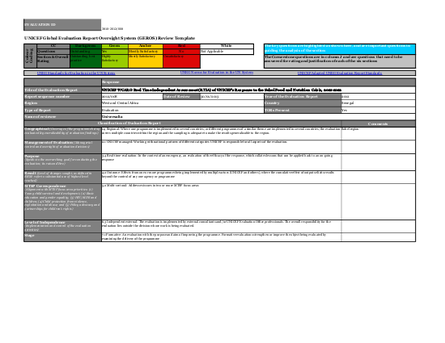
The object of the evaluation -- UNICEF's response to the nutritional crisis in the Sahel region -- is clearly described in the Background and Justification section of the report (pp. 13-14). Descriptive elements include the roles UNICEF's role in the lead-up to the crisis; the chain of events that led to the situation in 2011-1;, UNICEF's response (i.e., actions pursued); the number of countries, people and children affected; and the costs of addressing the problem. The context is partly mentioned in the first paragraphs of the Background section, and explored in detail in the first section of the findings. It includes more specific information on the institutional, gender, social and economic-related context of the Sahel region, which directly or indirectly contributed to the emerging food crisis. Surprisingly however, other than the mention of "poor rains", biophysical factors, human-environment interactions, and land-use decisions that can aggravate or exacerbate drought conditions are altogether absent from the Background and Context sections. Nevertheless, contextual elements are treated as findings in their own right and inferences to the overall context are discussed in other dimensions of the section on findings (e.g., "needs assessment") and in the Discussion that follows.